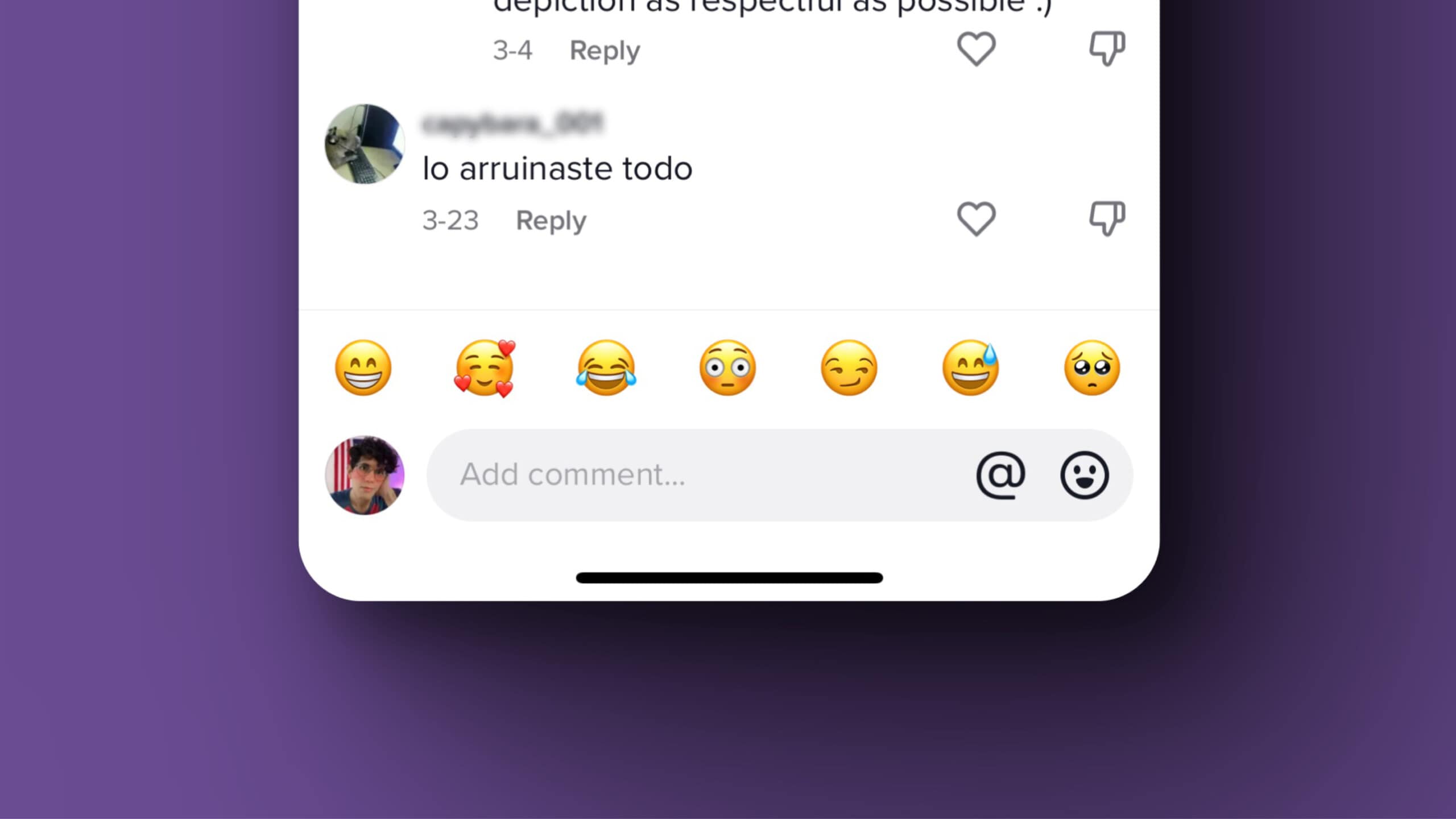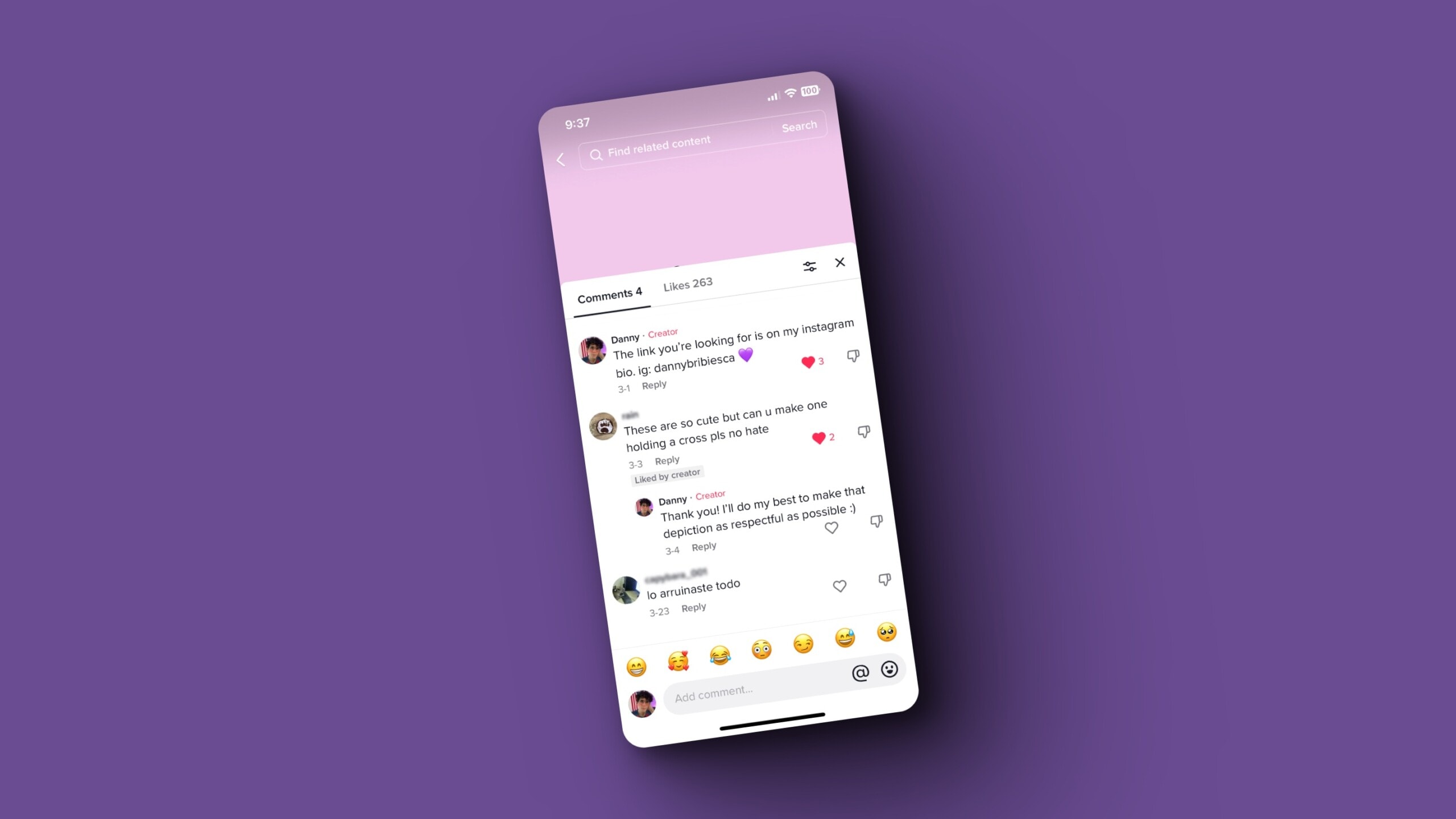So you have received some unwanted comments? I know receiving a mean comment can be frustrating, upsetting, or even hurtful, depending on the nature of the content… Trust me, I’ve been there. Still, remember: you cannot control how others react, but you can control your own reaction to things. This is the best strategy you have.
Table of Contents
A few weeks ago, I received a comment that made me feel uncomfortable. It didn’t use any bad words or was mean in any obvious way. Instead, it felt like a subtle aggression. For those of you who follow me, you may know that last month, I created a couple Capybara LGBTQ+ Wallpapers (capybaras holding LGBTQ+ flags). Inspired by #capybaratok (the TikTok trend with the catchy capybara song) I decided to make a TikTok to let other capybara-loving human beings know about the existence of my wallpapers.
I had made some Hartstopper-inspired wallpapers before the capybara ones, to which I only received positive comments. Only this time, I received one I wasn’t expecting. “You have ruined everything,” read the TikTok comment in Spanish.

My first reaction was to figure out if I knew the user. Answer: I didn’t. Then, I tried to figure out what they were talking about. It suddenly hit me; they implied I had ruined the trend by introducing LGBTQ+ content into the mix.
This led me to think: “Are they being mean?” My brain told me they were, but I was now facing a different dilemma. Is this a homophobic comment? Should I delete it? Leave it? Where do I draw the line? Here are a few of the things that helped me make a decision:
The Different Types of Unwanted Comments
There are different types of unwanted comments that you might encounter on social media or blog posts. Here are some common examples:
- Trolling: Comments that are intentionally provocative, offensive or disruptive with the purpose of starting an argument or upsetting the conversation.
- Harassment: Comments that are threatening, demeaning, or abusive in nature, aimed at you or other commenters. These types of comments may also include personal attacks or hate speech.
- Spam: Comments that are irrelevant to the content of your post or video, often promoting unrelated products or services, and typically posted repeatedly or by bots.
- Criticism: Comments that are critical of your content, style, or point of view, and may not always be constructive or respectful.
It’s important to note that while not all criticism or dissenting opinions are unwanted, some may cross the line into trolling or harassment. Therefore, it’s important to consider the tone and intent of comments when deciding whether to respond or moderate them.
Strategies for Dealing with Unwanted Comments
Dealing with unwanted comments can be challenging, but there are several strategies you can use to manage them:
- Ignore the comment: If the comment is not harmful or does not add value to the conversation, you may choose to simply ignore it. Responding to negative comments can sometimes escalate the situation and draw more attention to the comment.
- Respond calmly: If you choose to respond to a negative comment, do so calmly and respectfully. Avoid getting defensive or aggressive in your response, as this can make the situation worse.
- Flag the comment: Many platforms have tools for flagging comments that violate community guidelines or terms of service. Flagging the comment can alert the platform’s moderators to the issue and potentially lead to the comment being removed.
- Delete the comment: If the comment is harmful or violates community guidelines or terms of service, you may choose to delete it. However, be aware that deleting comments that express a dissenting opinion or criticism may be viewed as censorship.
- Disable comments: If you consistently receive negative or unwanted comments, you may choose to disable comments on your videos or posts. This can help prevent negative comments from being posted in the first place.
It’s important to remember that you have control over the comments section of your videos or posts, and that you can take steps to manage unwanted comments. However, it’s also important to allow for healthy and respectful discussion, and to avoid censoring dissenting opinions or criticism.
The Ethics of Comment Moderation
Comment moderation can be a complex issue, and there are different ethical considerations to keep in mind. Here are some key points to consider:
- Free speech: There is an ethical debate around whether deleting comments is a form of censorship that violates the principles of free speech. While it’s important to allow for open discussion and diverse viewpoints, it’s also important to maintain a safe and respectful online community. As such, there are certain situations where it may be appropriate to delete comments that are harmful or disruptive.
- Transparency: If you choose to moderate comments, it’s important to be transparent about your moderation policies and communicate them clearly to your audience. This can help build trust and credibility with your audience.
- Consistency: It’s important to be consistent in your approach to comment moderation to avoid the perception of bias or favoritism. Establishing clear moderation policies can help ensure that comments are moderated fairly and consistently.
- Respectful communication: Even if you choose to delete a comment, it’s important to do so in a respectful and professional manner. This can help prevent further negative interactions and maintain a positive online reputation.
Ultimately, the ethics of comment moderation require a balance between the principles of free speech, community safety, and maintaining a positive online environment. It’s important to approach comment moderation with care and consideration, and to communicate clearly with your audience about your policies and expectations.
So what did I do at the end? Though it may seem obvious to me now, it wasn’t obvious back then. For a brief moment, I was angry and wanted to delete the comment and pick a fight, but I decided to leave it alone and ignore it. And here are my reasons:
- It wasn’t being overly aggressive nor saying bad or mean words to someone specific (that’s where I draw the line).
- I didn’t want to invite the user back into the comment section of the video (they’d probably forgotten about it by the time I saw the comment).
- They’re allowed to express their own mind.
- Negativity like that doesn’t deserve my attention.
So what would’ve you done?
If you’re interested in this topic, here’s an other opinion from Alexandra (a program manager at Google): How to make your comments section a walk in the park
Like always, until next time,
Danny Bribiesca




